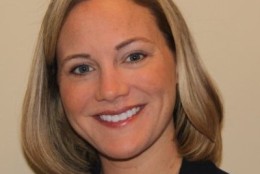Commentary
-
It's also the sort of case illustrating how data analysis can prove a hunch or turn something up altogether new.
April 07, 2016 -
If we start with these seven basics, we could have the potential to design a more accountable civil service that is free of political influence.
April 07, 2016 -
Alan Balutis, a senior director and distinguished fellow with Cisco Systems’ U.S. Public Sector Group, argues that the next president should provide early-out authority to quicken the pace of long-time federal employees leaving and make room for the next generations.
April 05, 2016 -
Richard Lieberman, a consultant and retired attorney, makes the case that agencies can’t pick and choose when to apply the Federal Acquisition Regulations to task orders under multiple award contracts.
April 04, 2016 -
Dr. John Hnatio, the director of the Institute for Complexity Management, responds to Federal News Radio's Tom Temin's commentary on how widespread wrongdoing is across the government.
April 04, 2016 -
Kareem El-Alaily, managing director of Censeo Consulting Group, makes the case for why enterprise license agreements (ELAs) pave the way for future data and reporting required by government agencies to meet Federal IT Acquisition Reform Act (FITARA) policy guidelines.
March 31, 2016 -
Todd Lyle, president of Duncan LLC, argues that a new wave of leadership is needed to take advantage of emerging technology and services.
March 29, 2016 -
Rather than cutting DLA, the Department of Defense should consider growing the agency and its mission. DLA is not perfect, but it has proven it can do more. It should be allowed to do so.
March 29, 2016 -
Some weeks just seem weirder than usual. Last week was one of them. Federal Drive host Tom Temin has some nominations for strange and shocking stories.
March 28, 2016 -
With apologies to comedian Jeff Foxworthy, former DHS CHCO Jeff Neal ticks off things that might make you a bureaucrat.
March 24, 2016 -
Today, law enforcement agencies look to technologies, such as body-worn cameras, to reduce crime. However, while body-worn cameras provide public safety benefits, they also create a new type of public safety challenge: data security.
March 23, 2016 -
OPM made the right call this week when Metrorail was closed down for the day. Certainly not the popular call, but the one that was the right business decision for the taxpayers.
March 18, 2016 -
Amanda Christian, a member of the National Contract Management Association board of advisors, makes the case for why aligning private and public sector contract practices makes sense.
March 15, 2016 -
Too many federal workers do not feel safe speaking honestly with their supervisors and agency leaders.
March 15, 2016 -
If innovators in industry can do it, why is the government — one of the world’s largest buyers of information technology — lagging behind when it comes to adopting digital technology?
March 11, 2016










